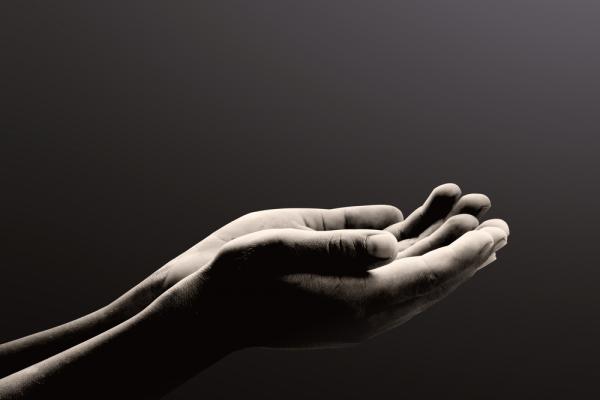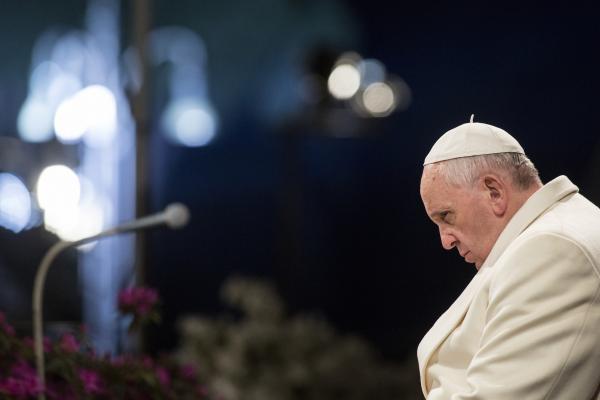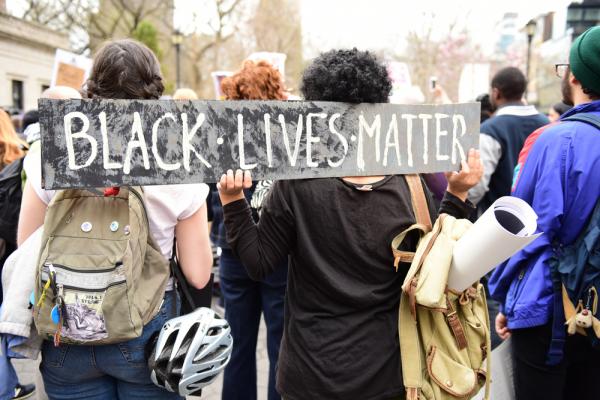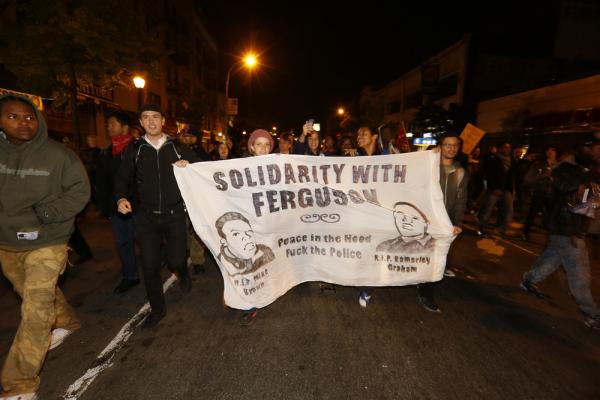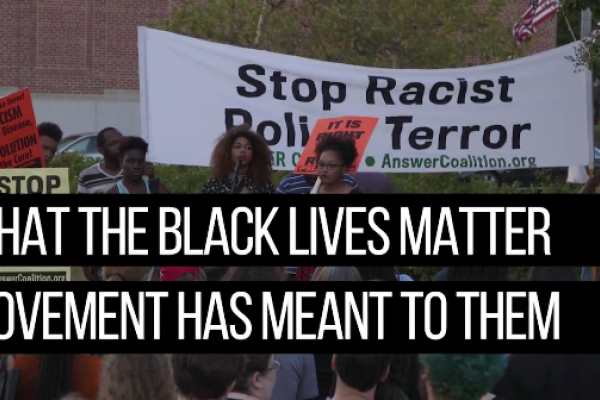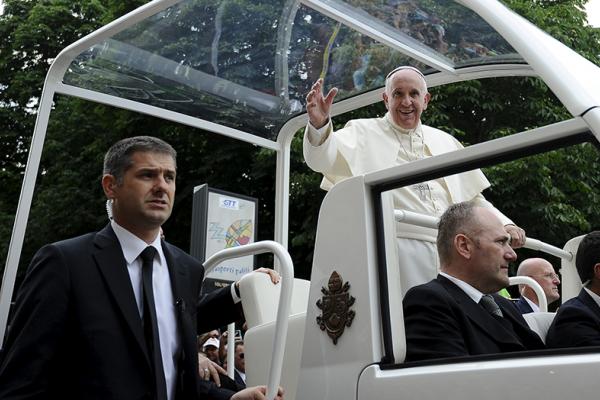When called to lead, Solomon didn’t seek his own glory, his own comfort, his own peace. Solomon sought the shalom of all his people. So, too, did the leaders above — and God said yes.
The movement to protect black lives gestated in the womb of our nation for years before Ferguson, but God birthed a movement in that place — in part because of wise and discerning leaders of faith.
May God help us all to enter the one year commemoration of Michael Brown’s death and the uprising in Ferguson, Mo., by reflecting on how we responded to God’s question a year ago: “What should I give you in the face of black death?”
Someone has said that Pope Francis is really a Protestant. He is, if Protestant is defined as someone who protests. His recent encyclical Laudato si' is a protest against the often irresponsible industries as they pollute the environment.
Pope Francis especially protests the ways in which coal is burned in the production of electricity. He is right to protest. What comes out of the smoke stacks of coal-fed electric power plants is linked to 50,000 deaths a year, according to Physicians for Social Responsibility. Because children and the elderly among the poor are the most vulnerable, the pope, following his namesake, St. Francis, has a special concern for those that Jesus calls "the least of these."
St. Louis County Executive Steve Stenger declared a state of emergency in Ferguson, Mo., today, urging County Police Chief Jon Belmar to “exercise all powers and duties necessary to preserve order, prevent crimes, and protect the life and property of our citizens,” the St. Louis Post-Dispatch reports.
The state of emergency comes after the arrests of at least 56 protesters, including prominent activists Deray Mckesson and Johnetta Elzie and famed writer Cornel West.
Grace has a track record of showing up when we least expect it, touching us in ways we never imagined, urging us to do things we never thought possible. It leads us into unexpected relationships, points us toward new places, helps us get started on significant and much-needed changes. It fulfills us in ways that we never even knew we needed. It takes us to places we never imagined. Grace saves us, over and over. Sometimes, from ourselves. I suppose that’s why we fight grace so much. We love a certain amount of predictability and a feeling of control. We want to do things our way, in our time. We want to stay just as we are.
That’s not the graceful way.
One year after the shooting and killing of Michael Brown, #FergusonTaughtMe is trending on Twitter. Activists, faith leaders, intellectuals, and everyday members of the movement have used the hashtag to explain how Ferguson fundamentally altered their racial consciousness. Embedded are a few tweets from Christian leaders who shared how Ferguson changed the way they do faith.
This is basic desire psychology. The thing we won’t share is the thing we most value — and that will provoke desire in others. So what does this have to do with Iran, the so-called enemy of the U.S.? Iran may be our enemy, but its desire for nuclear weapons is, in fact, a perfect imitation of our own. I am not discounting the dangers to U.S. security if nuclear weapons get into the wrong hands. But the U.S. may risk becoming an enemy of peace as well when it blames others for desires they learned from us.
Let me be clear: Iran is no more a child than we are. We are equals, mirror images of each other’s desires for nuclear weapons and global respect. Remember, if Iran refuses to relinquish their desire for nuclear weapons, it’s not defiance — it’s imitation. And yet it may be easier than we think to find a way to make peace with this particular enemy. The path is obvious and available to us: we can renounce our desire for a nuclear arsenal.
Sunday marked the 1-year anniversary of the killing of Michael Brown in Ferguson, Mo. Both in Ferguson, and across the country, the memorials and marches were held to remember those lost to police violence. Here in Washington, D.C., we attended one such demonstration and asked protesters what the #BlackLivesMatter movement has meant to them over the past year.
The Vatican on Aug. 10 announced a World Day of Prayer for the Care of Creation, the latest move by Pope Francis to push environmental issues up the global agenda.
The World Day will be celebrated annually on Sept. 1, in line with the Orthodox Church’s day for the protection of the environment, the pope said in the newly-released letter.
“As Christians we wish to offer our contribution towards overcoming the ecological crisis which humanity is living through,” Francis wrote in the letter, addressed to Cardinal Peter Turkson, president of the Pontifical Council for Justice and Peace, and Cardinal Kurt Koch, president of the Pontifical Council for the Promotion of Christian Unity.
In honor of the one-year anniversary of Michael Brown’s death in Ferguson, Mo., Sojourners asked a variety of faith leaders — Catholics, Baptists, Muslims, agnostics, evangelicals, and humanists — to reflect: How has your faith been challenged, affirmed, or deepened by the Black Lives Matter movement? Has your theology changed? And, most importantly, what are we being called to do?
Here’s what they said.
Seventy years after the U.S. dropped an atomic bomb on the Japanese city of Nagasaki, Pope Francis on Aug. 9 described the bomb as a “lasting warning to humanity.”
Speaking to the faithful gathered in St. Peter’s Square, Francis recalled the “horror and repulsion” aroused by the twin bombings of Nagasaki on Aug. 9 1945, and Hiroshima, three days earlier.
“This (event) has become the symbol of mankind’s enormous destructive power when it makes a distorted use of scientific and technical progress,” he said.
